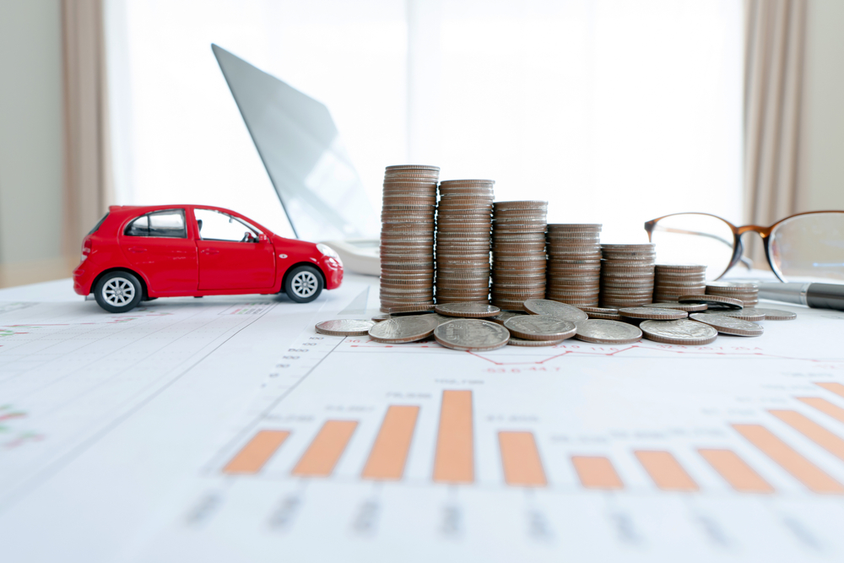In recent years, Pakistan has seen a notable rise in asset prices, including vehicles, properties, and other valuables. This surge often leads to questions about car selling tax: Do you need to pay tax on the profit from selling your car? To answer this, we’ll explore the Pakistani Income Tax Ordinance, focusing on Sections 37 and 38, which govern car selling tax rules.
Whether you’re an individual curious about personal car selling tax or a business owner dealing with company vehicles, this guide clarifies the tax implications.
Over the past few years, asset prices in Pakistan have climbed steadily. Picture this: you bought a car four years ago for PKR 1 million, and now you’re selling it for PKR 1.8 million, pocketing a PKR 800,000 profit.
This scenario raises a key question about car selling tax: Is this gain taxable? The answer hinges on how the Income Tax Ordinance classifies the car and who owns it. Let’s dive into the details of car selling tax in Pakistan.
The heart of the car selling tax debate lies in Sections 37 and 38 of the Income Tax Ordinance. These sections define “capital assets” and outline car selling tax rules for gains. Capital assets include property, jewelry (like gold), paintings, antiques, and coins—but not personal cars.
If your car is for personal use (e.g., daily commuting), the profit from its sale isn’t subject to car selling tax as a capital gain. That PKR 800,000 profit from our example? It’s tax-free if the car is a personal asset under Pakistan’s car selling tax laws.
Here’s the twist in car selling tax rules: if the car is owned by a business or company (e.g., registered under ABC Enterprises), the profit is taxable. In this case, the gain from the sale is treated as “other income” under the Income Tax Ordinance, subject to standard car selling tax rates.
For instance, if ABC Enterprises sells a car bought for PKR 1 million for PKR 1.8 million, the PKR 800,000 profit faces car selling tax. Proper documentation of ownership is vital to navigate these car selling tax distinctions.
How to Report Car Selling Tax Gains in Your Tax Return
Even if the profit from a personal car sale isn’t subject to car selling tax, you must report it correctly in your tax return (Form 114). Here’s how to handle it without triggering car selling tax scrutiny:
- Avoid the Income Section: Since it’s not taxable, don’t list it under “Return” with salaries or earnings.
- Use the Wealth Statement: Report it in the “Wealth Statement” section, which tracks personal asset changes.
- Best Method: In the “Adjustment in Inflow” tab, select “Gain on Personal Car” and enter the amount (e.g., PKR 800,000). This specificity clarifies that no car selling tax applies, minimizing audit risks.
Avoid vague labels like “Other” in the wealth reconciliation—such entries might prompt car selling tax queries from the Federal Board of Revenue (FBR).
Sections 37 and 38 provide the foundation for car selling tax exemptions. Section 37 details capital gains taxation, while Section 38 lists capital assets like paintings and jewelry—leaving out personal cars. Why? Personal vehicles are seen as depreciating assets for daily use, not investments subject to car selling tax.
This exclusion keeps profits from personal car sales free of car selling tax, as long as they’re not business-related. Studying both sections together is key to understanding these car selling tax nuances.
If you want to learn , how to file income tax return in pakistan, explore our detailed guide , how to file the income tax in the pakistan,along with FBR income tax calculator.
Here’s what Pakistani taxpayers need to know about car selling tax:
- Ownership Defines Taxability: Personal cars avoid car selling tax; business cars don’t. Clear records are essential.
- Accurate Reporting: Use the Wealth Statement for personal car sale gains to stay compliant with car selling tax rules.
- Legal Clarity: This guide reflects a practical take on car selling tax laws—consult a tax expert for complex cases.
- Pakistan-Specific: These car selling tax rules apply only to Pakistan’s Income Tax Ordinance.
In summary, profits from selling a personal car in Pakistan are generally exempt from car selling tax under Sections 37 and 38, as they aren’t capital assets. However, if a business or company owns the car, the gain is taxable as “other income” under car selling tax regulations.
For personal sales, report the profit in the Wealth Statement with clear labeling to avoid car selling tax confusion with the FBR.
Sold a car recently and wondered about car selling tax? Share your experience in the comments! For more insights on car selling tax and updates, subscribe to our newsletter or consult a tax professional.

